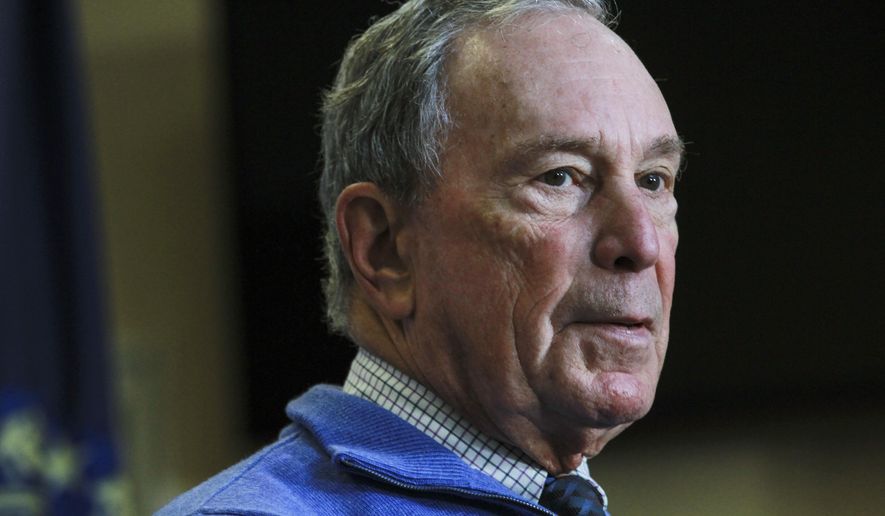Virginia Attorney General Mark Herring was hit with a lawsuit Wednesday aimed at unearthing the details of his efforts to bring on a lawyer to pursue climate litigation through a program paid for by billionaire Michael Bloomberg.
Chris Horner, senior fellow at the Competitive Enterprise Institute (CEI), said he filed the lawsuit after Mr. Herring’s office refused to provide documents to support its 2017 application for a New York University law fellow to work as a “clean energy special assistant attorney general.”
The Office of the Virginia Attorney General told Mr. Horner that it had no such records in response to his earlier open-records request, which he called “inconceivable.”
“Given the apparent prohibitions in the Virginia Code against this arrangement, not to mention due process concerns, it is inconceivable the commonwealth’s top legal office claimed authority to do this without considering whether it’s legal,” Mr. Horner said.
“We seek confirmation if this is the case and to find out how the OAG could claim to have ’no records’ responsive to these requests,” said Mr. Horner, who filed the petition on behalf of himself and CEI in Richmond Circuit Court.
The lawsuit comes as the first to challenge the legality of state attorneys general acquiring “special assistants” funded by the NYU School of Law’s State Energy & Environmental Impact Center to advance environmental and climate policies.
Founded in August 2017 with a $6 million grant from Bloomberg Philanthropies, the center said it has placed 14 legal fellows in 10 states, despite concerns over the specter of privately funded climate litigators wielding state prosecutorial power.
“The ethical problems here should be obvious,” said The Wall Street Journal in a Nov. 7 editorial. “Private interests are leveraging the police powers of the state to pursue their political agenda, while a government official is letting private interests appear to influence enforcement decisions.”
The center has countered that the work of its legal fellows, who serve two-year stints, is directed and overseen solely by the attorneys general, although they are required to submit quarterly reports explaining how the special assistants have contributed to “clean energy, climate change, and environmental initiatives.”
Mr. Horner obtained an application from Mr. Herring’s office asserting that bringing on privately funded attorneys to work on specific issue areas was legal, noting that the office has historically employed law-school fellows.
“Although the arrangement with the State Impact Program and NYU would be somewhat different, there are no Virginia-specific limitations or requirements that would apply to the OAG’s employment of a NYU fellow as a Special Assistant Attorney General,” said the application dated Sept. 15, 2017.
In December, the center announced that Virginia, Pennsylvania and Oregon had been selected to receive the privately funded prosecutors, but Mr. Herring has yet to acquire one, despite praising the program in a press release.
“The work the State Impact Center is doing to protect our environment and promote clean energy is so important, and I’m glad Virginia is participating in its fellowship program,” Mr. Herring said. “I look forward to the opportunities this partnership will provide to address climate change and protect our environment for future generations.”
Mr. Horner, who argued that Virginia law prohibits such an arrangement, asks in the lawsuit for any legal analysis and records related to “the unprecedented, highly conflicted arrangement.”
“This donor-funded scheme of law enforcement for hire, using public office to expend resources not appropriated or approved by the AGs’ legislatures, raises conflict, statutory and significant constitutional issues as well as ethics concerns,” he said. “These serious concerns should be the subject of prompt and serious legislative oversight.”
All 10 of the states, including Virginia, invited to participate in the program’s first phase have Democratic attorneys general, although the center has billed itself as nonpartisan.
Mr. Herring’s office did not respond immediately to a request for comment.
• Valerie Richardson can be reached at vrichardson@washingtontimes.com.




Please read our comment policy before commenting.